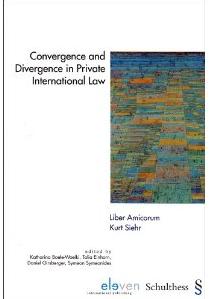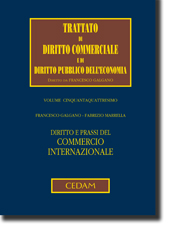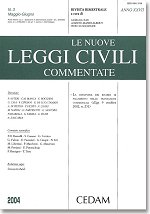The Dutch Supreme Court on how to deal with the CISG on appeal (Willemen Infra v Jura)
On 24 February 2023, the Dutch Supreme court has ruled in the case Willemen Infra v Jura, ECLI:NL:HR:2023:313. The ruling clarifies the scope of the Dutch courts’ duty to apply the CISG (UN Convention on Contracts for the International Sale of Goods, 1980) ex officio on appeal. The Dutch appellate courts shall not review of their own motion whether the first instance court had to apply the CISG to the dispute, if the question of governing law was not the subject of parties’ objections on appeal and thus got “beyond the parties’ dispute”.
Facts
The facts of this case related to a sale of gutters by a Dutch seller to a Belgian buyer. The gutters were to be used for the renovation of a runway at Zaventem airport. According to the seller’s general terms and conditions, the disputes were to be resolved before a Dutch court on the basis of Dutch law.
After the start of performance, the buyer had reasons to assume that that the seller was unable to timely supply the products of the required quality. The buyer refused to take all the purchased gutters.
Proceedings
The seller disagreed and claimed damages for the loss of profit caused by the breach of contract. In the proceedings, the buyer submitted a counterclaim, invoking partial avoidance of contract and, alternatively, nullity of contract due to vitiation of consent. The buyer submitted namely that it had concluded the contract based on misrepresentation relating to the products’ quality (the certificates which the products should have) and the delivery time.
The seller relied on both the CISG and Dutch law in its written submissions, including the statement that the choice for Dutch law in the general terms and conditions should be interpreted as excluding the application of the CISG. During the oral hearing, both parties referred to Dutch law only (see on this the Conclusion of the Advocate General, at [3.4]). The first instance court ruled as follows in relation to applicable law: ‘According to the [seller], the contract is governed by Dutch law. (…) ‘The court contends that [the buyer] also relies on Dutch law in its arguments, and thus follows [the seller’s] reasoning. The court follows the parties in this and shall apply Dutch law.” (the formulation is quoted in Willemen Infra v Jura at [4.3.1], compare to Advisory Council’s Opinion nr 16). The court has then applied the Dutch civil code, not the CISG, to the dispute.
The seller appealed against the decision, but not against the applicable law. Nevertheless, the appellate court considered of its own motion, whether the contract was governed by the CISG. It ruled that the contract fell under the CISG’s scope; the Convention was directly applicable on the basis of article 1(1)(a) CISG, as both Belgium and the Netherlands are Contracting States to CISG. Furthermore, the parties to the dispute have not explicitly excluded the CISG’s application based on article 6. The appellate court has applied the CISG to the contractual claim, and Dutch law – to the claim relating to the vitiation of consent, as this matter falls outside the Convention’s scope. The buyer has labelled the application of the CISG ‘surprising’, because no claim in appeal targeted applicable law.
In cassation, the Dutch Supreme has ruled that applicable law was indeed “beyond the parties’ dispute” on appeal. Therefore, the appellate court was neither free to determine applicable law anew nor free to apply CISG of its own motion (Willemen Infra v Jura at [2.1.2]- [3.1.6]).
CISG and procedural ordre public?
The ruling is logical from the point of view of civil procedure. Appellate review follows up on – and is limited by – the points invoked on appeal. Issues “beyond the parties’ dispute” are not reviewed, unless these issues fall under the rules of procedural ordre public, which the appellate courts must apply of their own motion. While there is no unanimously accepted definition of the Dutch procedural ordre public, the cassation claim explicitly suggested that ‘the CISG is not of ordre public’ (see Conclusion of the Advocate General, at [3.3.]). Whereas this element of the cassation claim has been satisfied, neither the Advocate General nor the Court have engaged with the discussion whether procedural ordre public covers direct application (or applicability) of the Convention’s uniform substantive sales law, even if it would be confined to establishing whether the parties have opted-out the CISG based on its article 6.



 An extensive and thorough
An extensive and thorough  The papers presented at the
The papers presented at the